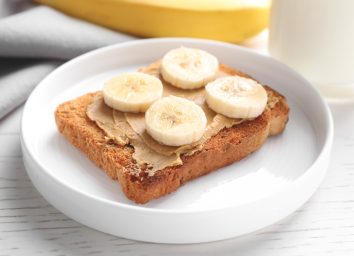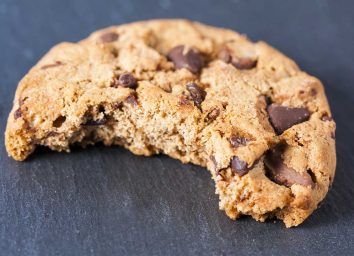7 Hacks For Curbing Your Late-Night Cravings
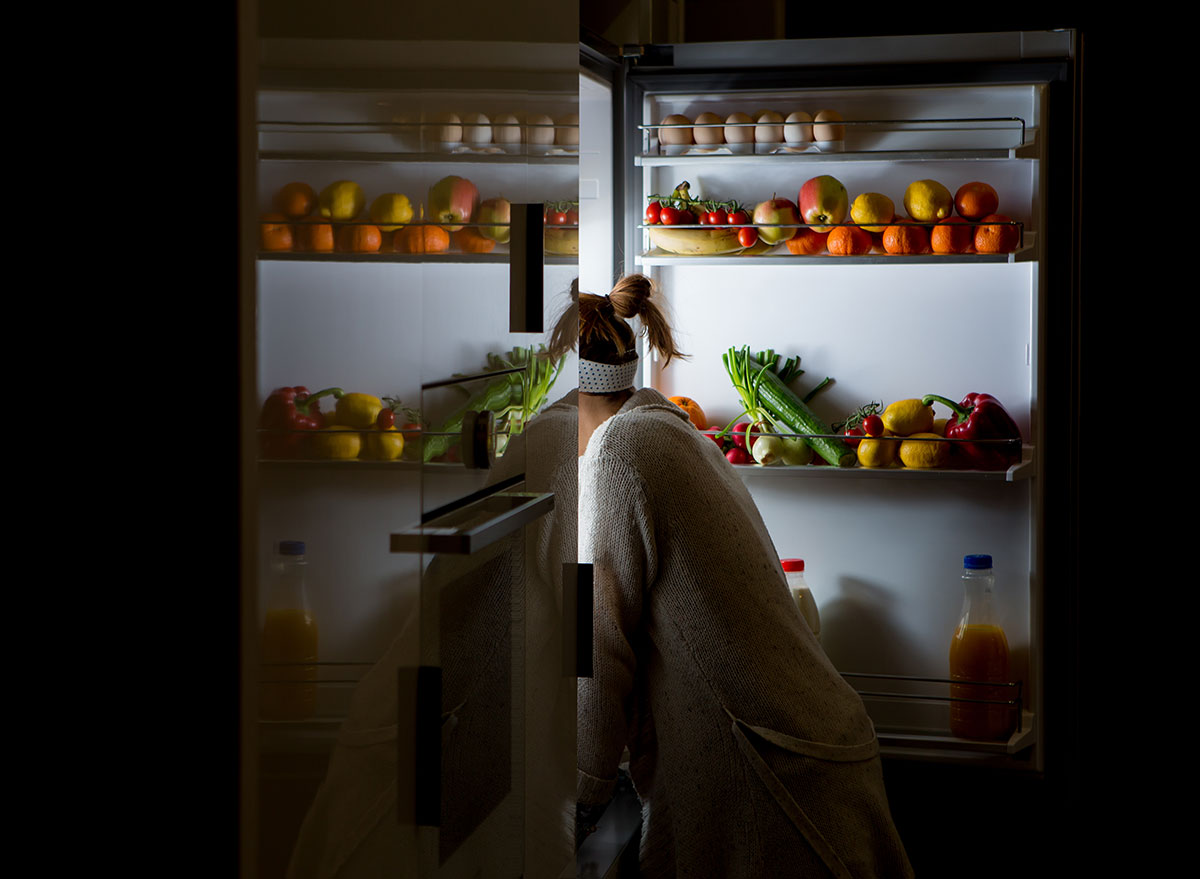
How many times have you heard someone tell you the key to curbing late-night cravings is to simply brush your teeth? That somehow if you brush your teeth, you magically don't feel hungry anymore and won't feel like ruining perfectly clean pearly whites? While this theory works for some, it certainly doesn't work for all—especially for those who are experiencing crazy cravings late at night. So instead, we turned to a few late-night craving hacks that will help curb that hunger of yours.
In truth, it all starts with getting yourself in a good routine. The key to curbing late-night cravings actually starts with healthy living and good eating habits throughout the day. By making a few swaps during the day, you'll see yourself experiencing fewer cravings in the middle of the night.
And no, the answer isn't simply to drink more water. While it's still important to drink enough water throughout the day for your overall hydration and body function, there's not enough scientific evidence to prove that thirst can be masked as hunger.
Here are a few late-night craving hacks to keep in mind throughout the day that will pull you out of a crazy craving you may have later. For even more healthy tips, check out our list of 21 Best Healthy Cooking Hacks of All Time.
Eat a good breakfast.
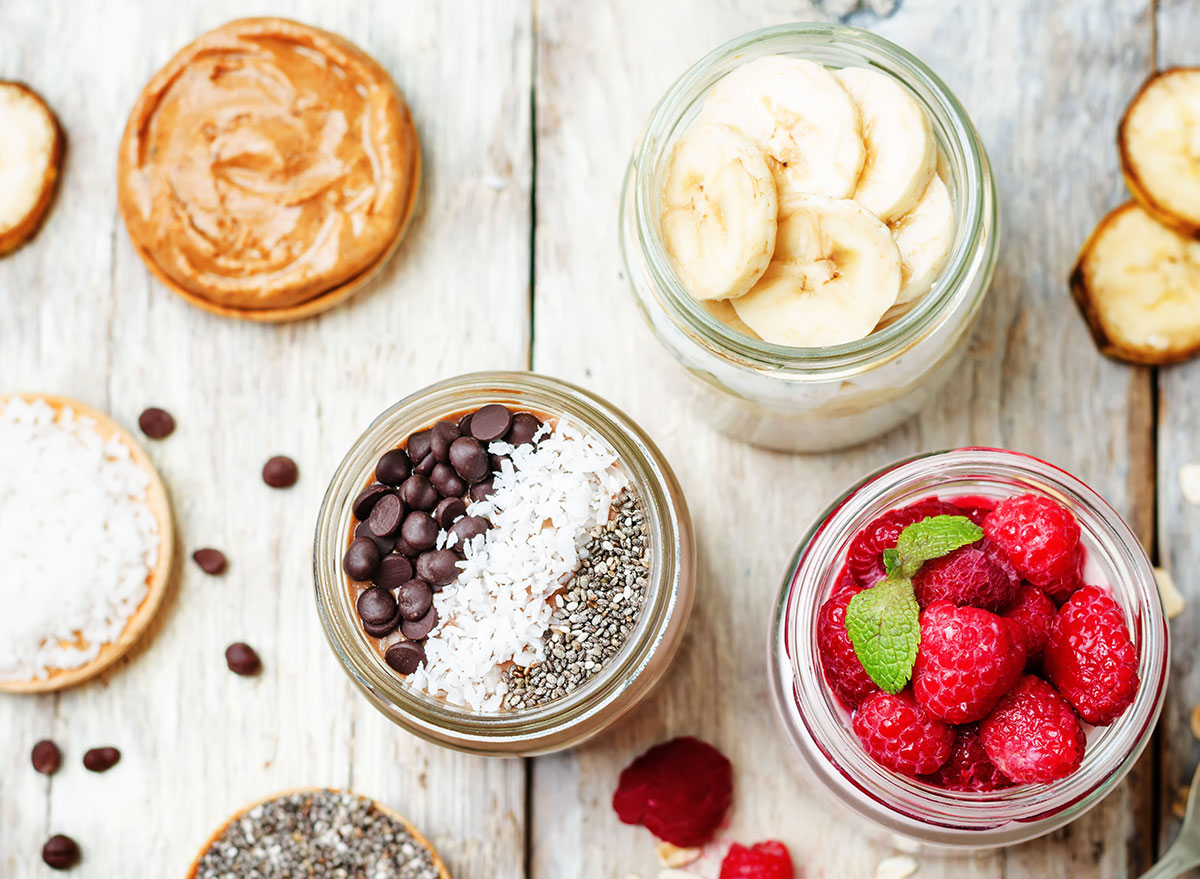
Maggie Michalczyk, RDN, founder of OnceUponAPumpkinRD.com, and author of the book The Great Big Pumpkin Cookbook, says the key to feeling less starved at night is to simply eat a good breakfast in the morning—one that is full of protein, healthy fat, and good carbohydrates. Carbohydrates with a good amount of fiber—like a whole grain toast or oatmeal—are a great place to start. With a breakfast packed with these nutrients, you'll feel full and satisfied for longer periods of time.
If you're constantly rushing in the morning, it can be helpful to prep a few things ahead of time so you can ensure you're starting your day with a good breakfast. Michalczyk suggests prepping hard-boiled eggs, baked oatmeal, overnight oats, or even a veggie frittata to enjoy throughout the week. You can also incorporate a few of these healthy breakfast habits as well.
Incorporate potatoes into your diet.
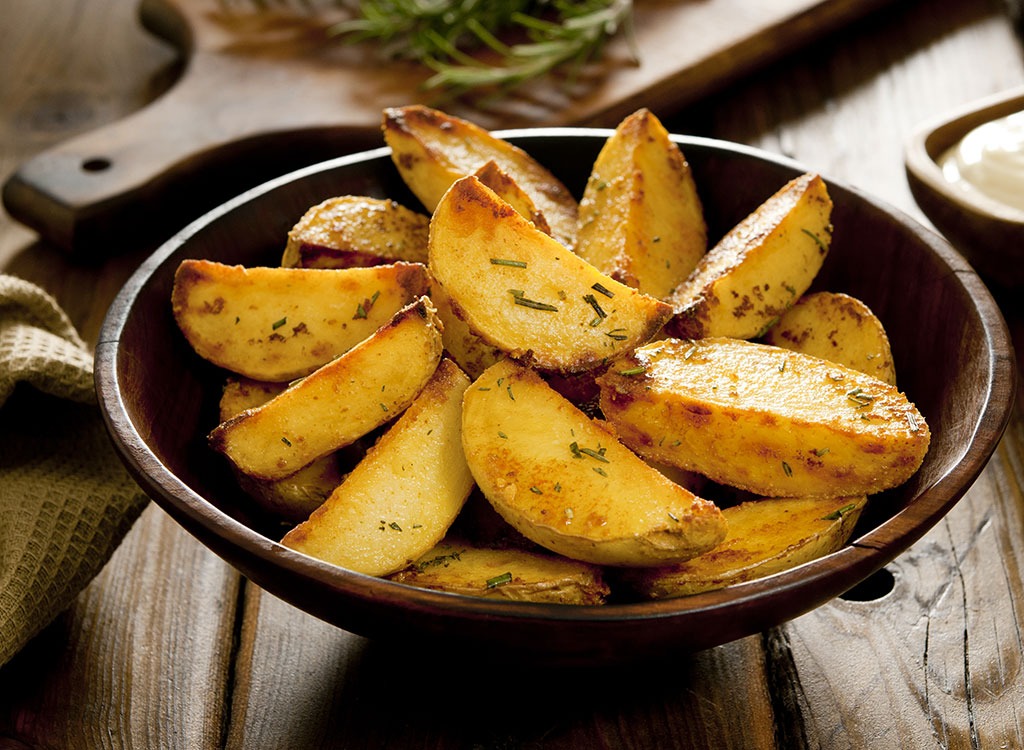
Potatoes? Yes, really. According to the Satiety Index of Common Foods published by the Department of Biochemistry at the University of Sydney, the satiety level (level of fullness) of boiled potatoes is actually a lot higher than other foods. While potatoes may not seem like the pinnacle of health, they are surprisingly low in calories (one medium-sized white potato averages between 90-100 calories) and can squash that hunger you feel.
You can try to include potatoes in all kinds of meals, without overdoing it on the calories! Our recipes for oven-baked fries, or even this breakfast Italian hash, are great places to start. By swapping out your usual simple carbs (like white bread or pancakes), opt for a side of potatoes for one of your meals. You'll feel a lot more satisfied throughout the rest of your day—and even through the night.
So as you plan out your meals, try to incorporate potatoes in there, as well as foods from our list of appetite suppressants.
Get good sleep.

Did you know that getting a sufficient amount of sleep can actually affect your brain's desire for food? In a study published by Nature Communications, it's been proven that "sleep deprivation can significantly decrease the activity in appetitive evaluation regions within the human frontal cortex and insula cortex during food desirability choices." By not getting enough sleep, your brain can actually be affected in terms of triggers that will lead you to want to eat more.
Even recently a study published by JAMA Internal Medicine proved that sleeping a mere 15 minutes more than usual can actually significantly help with weight loss. Sleeping patterns have been commonly associated with one's overall weight management.
The Center for Disease Control and Prevention (CDC) provides a guide for how much sleep the average adult needs, which is between 7 to 9 hours a night.
For even more healthy eating tips, be sure to sign up for our newsletter.
Plan your snacks.
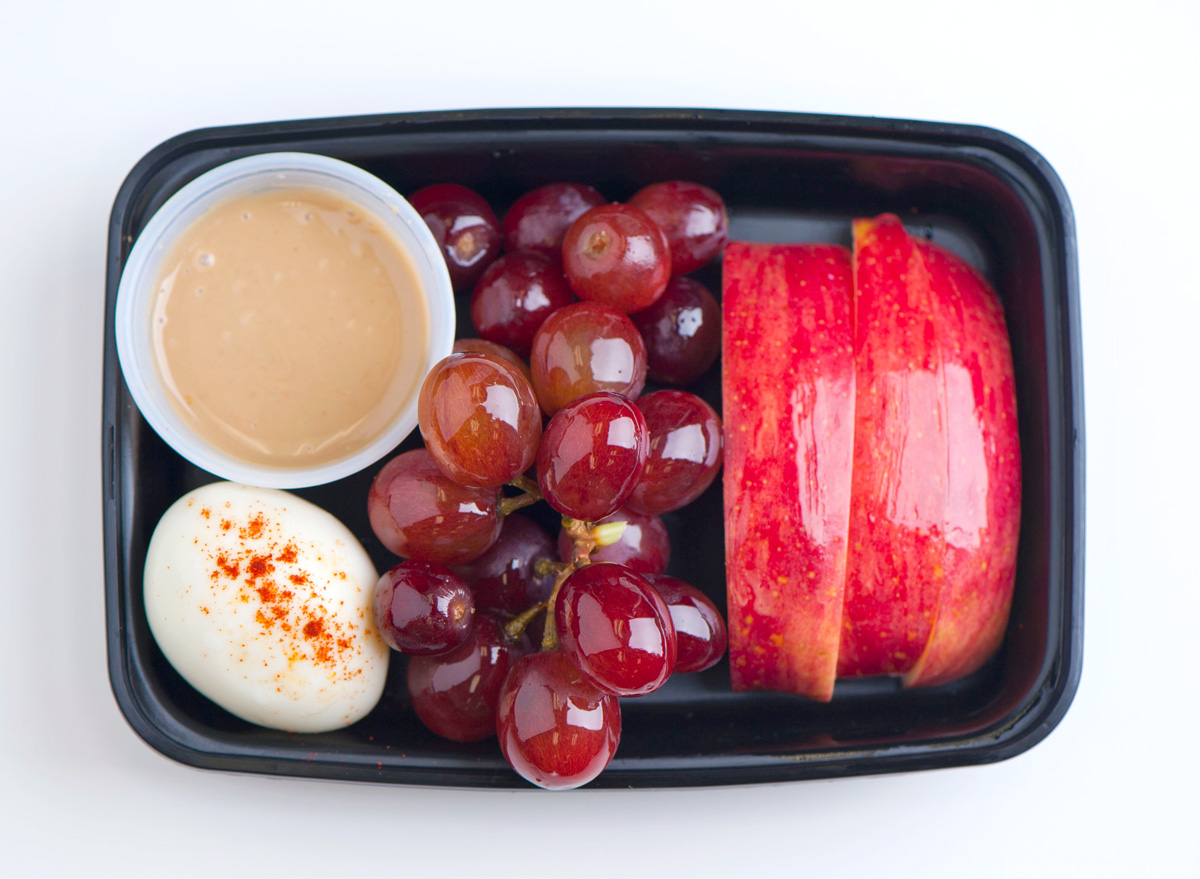
If you plan on grabbing healthy snacks for your home (instead of one of these unhealthiest snacks of all-time), you're setting yourself up for success, right? While this seems like it would work in theory, it can still lead you to snacking late at night when a craving hits.
Instead, why not plan on having a snack time in your day? And we're not saying you should eat smaller snacks throughout the day either—studies show that actually makes you hungrier. Instead, enjoy your usual three meals a day, and plan on having a snack as well. Be in tune with what your body needs and allow yourself that snack instead of waiting until late at night to eat it. Maybe a midday snack before lunch, or something in the afternoon for a little pick-me-up. Or why not both!
And if you don't feel like buying snacks, you can make them yourself with our list of immune-boosting snack recipes.
Enjoy a well-rounded dinner.
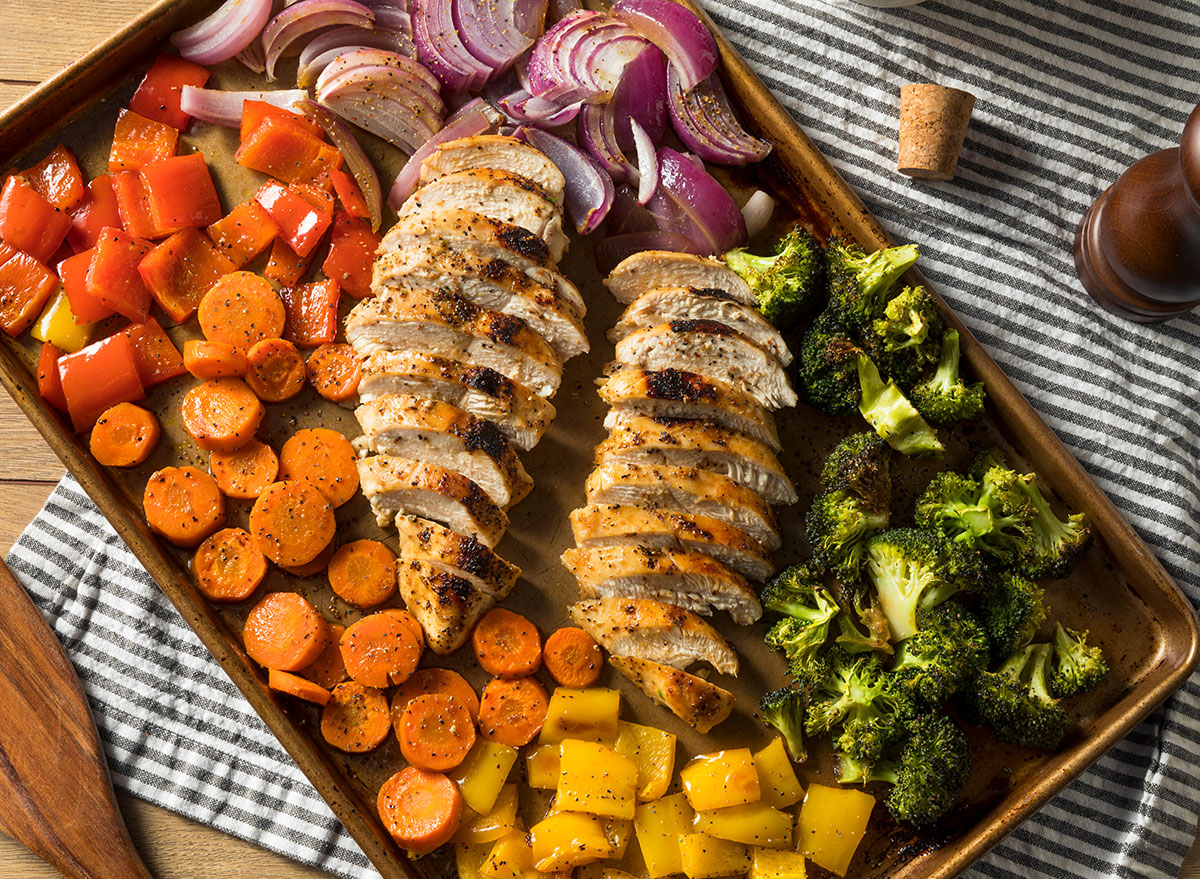
If you're filling up your dinner plate with protein, healthy fats, and complex carbohydrates, your body is going to feel satiated and full for many hours after—and will likely squash those late-night cravings you often feel.
Rachel Paul, PhD, RD from CollegeNutritionist.com, has an easy formula she constantly shares with her readers. When filling up a dinner plate, try to go for 2 cups of vegetables, 4-5 oz. of protein (about 150 calories), and 100-200 calories of fat. It's an easy formula to follow for satiating meals every time.
If you're in the market for more healthy dinner ideas, check out our list of healthy weeknight dinners.
Think about why you're hungry.

Before indulging in a late-night snack, take some time to evaluate your hunger. This type of practice is known as Intuitive Eating, and it can help you determine your body's particular eating patterns and cravings. Are you eating because you are actually hungry, or simply out of boredom or something else? Overall, this type of practice can help you determine when you're hungry during the day so you can satiate your body during those times, instead of letting a craving for food overcome you later.
If you're hungry, portion out your snack.
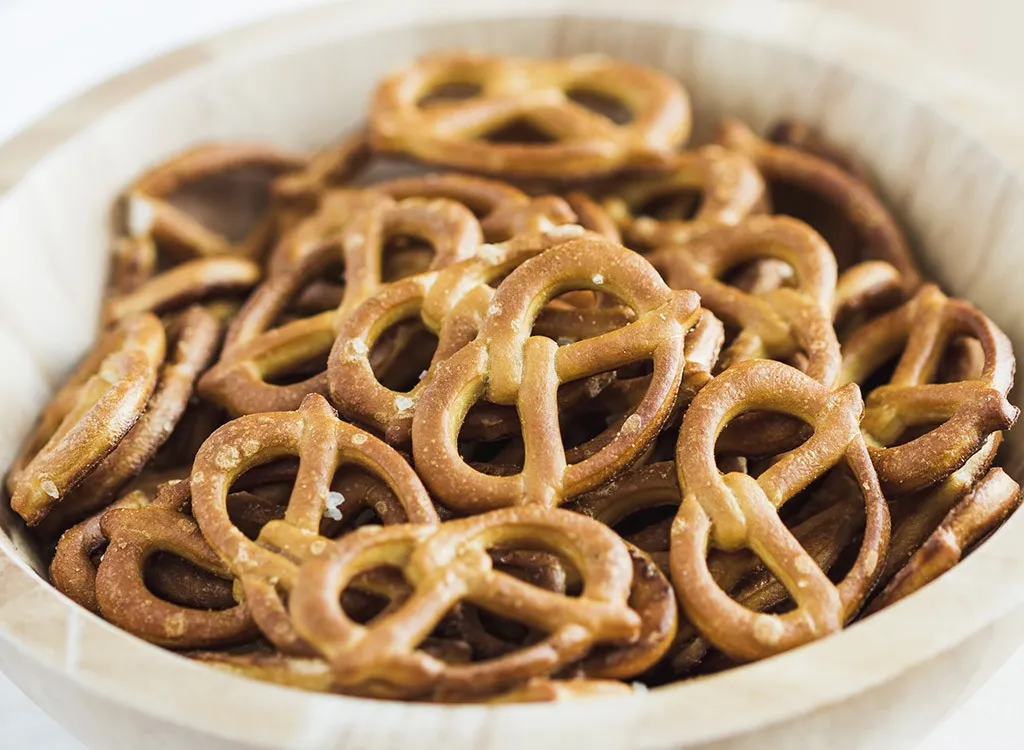
So you've taken all the necessary steps—eating satiating meals, getting good sleep, listening to your body—and you're still feeling massively hungry at the end of the day. This sometimes happens! You shouldn't beat yourself up if it's late and your body is hungry for something.
If you decide to have something, do yourself a favor and portion it out. Indulge in a dessert that will satisfy that sweet craving but won't go overboard—like one of these desserts under 150 calories. Snack on something that will leave you feeling satisfied instead of hungry for more—like one of these healthy snack ideas. And lastly, portion it out in a bowl and put the bag or box back. That way you can satisfy the hunger you feel, but won't leave you feeling bloated and overstuffed by constantly dipping your hands into that bag.
